Sunday 10 October was World Mental Health Day and at Prosperity 24/7, the wellbeing of our team is something we take seriously. Working in a technology business we can’t help but be constantly connected to our devices, but we understand the importance of switching off and having some real time off. So, we strongly encourage our colleagues to regularly take a break and have a digital detox.
A week ago, we all had a small, enforced detox from social media as Facebook’s platforms went down for 6 hours, how did it make you feel? Were you desperate for them to come back online and constantly checking your phone or did you breathe a sigh of relief and try something else instead?
What is a digital detox?
We’ve all done it. January comes round each year and we’re all flat out juicing and exercising to shed a few pounds and clear out the excesses left over from the festive season. Well, a digital detox is the same thing. It’s clearing your life of your tech devices to make way for some real-life connection and let go of some of the stress and anxiety that often comes with constant connectivity.
Why do a digital detox?
According to the American Psychological Association a fifth of US adults cited technology use as a significant source of stress in their lives. The ever-present digital connection, constant need to check emails, social media and messages, the regular ping of app notifications accounted for the majority of this stress. A Swedish research study found that heavy use of technology was also linked to sleep problems, depression symptoms and increased stress levels.
So why detox? You’ll sleep better. You’ll boost your productivity. You’ll increase your attention span. You’ll be happier and you’ll strengthen your real-life relationships.
How do you know if you need to detox?
If you find yourself doing some of the following things, then you know it’s time for a break.
You obsessively check your social media feeds – FOMO or Fear of Missing Out is fed by constant connectivity. You fear that you’re missing out on something important. As we’re ‘always on’ expected response time has also sped up. Or maybe your friend’s latest post about what a great time they are having can make you feel like your life is less exciting or that you are missing out on similar experience.
You have a hard time sleeping – heavy device use, particularly before bed can interfere with sleep quality and quantity. Primarily driven by keep the brain being kept awake by the ‘blue light’ of screens and not going by the natural progress of daylight to night time.
You aren’t getting as much done as you’d like each day – you find yourself losing focus because you’re picking up your phone too often and get easily distracted by income emails or messages.
Your phone has become the centre of your universe. You find it harder to stay in the moment and can’t focus with the person you’re with in real life. When you post to social media you are pre-occupied with every like, share or comment. The first thing you do in the morning is pick up your phone or the thought of losing your phone fills you with anxiety.
Top tips for detoxing
- No electronics when you first wake up – If your first reflex is to check your phone as soon as you wake up then it’s a sign that it’s taking over your life. The moment you wake up is the moment your brain is at its freshest. Use this time wisely.
- Stop all smartphone notifications (except calls or important stuff) – You don’t need it pinging away constantly at you when you want to focus.
- Have phone free zones such as the bedroom or during meal times.
- Use a real alarm clock and a real watch to help you to be notification free and have less temptation to pick up your phone.
- Select a time when you disconnect. At least half an hour before bed is a good time to allow your head to wind down and clear out. Too much blue light from your screens just before bed can disturb your sleep.
- Accept the FOMO – the fear of missing out is what keeps us hooked to our phones. Our social anxiety led by our desire to stay connected with what others our doing means we are constantly checking.
- Try something new offline – take up a new sport or a creative hobby.
- Plan your detox – think about how you would rather spend your time and who with. Detox together with your friends or family.
- Use time limits and do not disturb time on your phone.
- Make others aware that you are detoxing for a while and won’t be able to respond to messages immediately. Make a plan for how they can contact you if it’s urgent.
- Sounds counterintuitive but try a detox app. These apps set challenges to help you to limit the access you have to your phone and set time limits.
- Make sure you’re on holiday when you’re on holiday. Think about what you’ll do with your devices. Will you go offline for the full time or just a few hours each day?





